Dear Terry: Epistle #1 to A Dead Mother
Who Were You? Asks One Version of A Chronic Nose-Picking Son
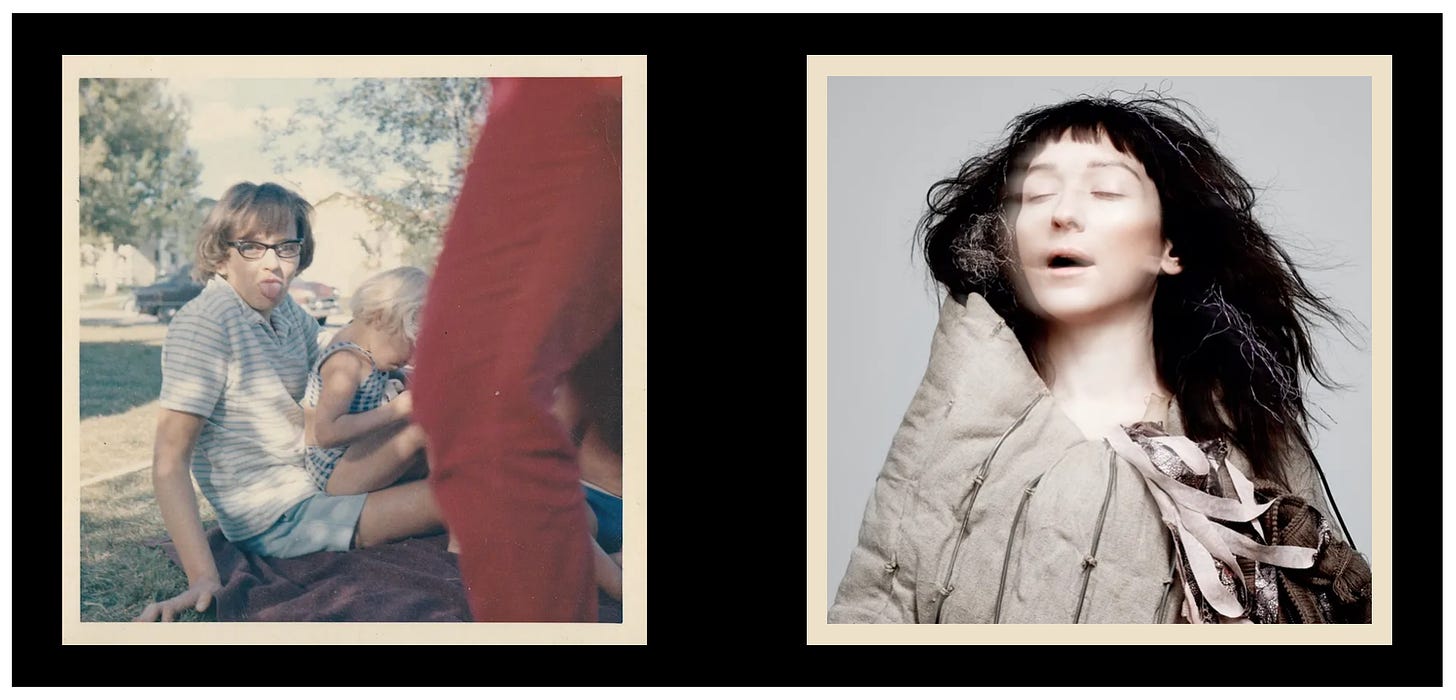
The Epistle’s Awesome Playlist:
Spotify
YouTube
Dear Terry:
In the summer of 2018, some few months after Yoshiko and I consummated our relationship as more than host and guest, she looked up into a corner of the living room and yelled out loud to the empty space something like ‘You get away from here! Get out! Now, don’t you hurt Maruchan any more!’ (Maruchan, meaning me. It is the Japanese name Yoshiko has given me.)
And that was how Yoshiko my partner met you, Terry aka my mother, dead since January 2015. She didn’t know how she knew that that spirit or ghost, or whatever it was, was you or of you. She knew in her bones, in the cells of her body. The creature or apparition was small, she described, crouched down on the floor with folded legs. She looked down on the floor. After Yoshiko’s outburst demanding that your ethereal shape be gone, the form of you went away. Yoshiko has a strong and great energy. About eighteen months later Yoshiko saw a picture of you, my human mother, that daughter number three had put into an online album. ‘Yes,’ Yoshiko told me and daughter number two and her husband, ‘yes, that is the person I saw in the living room.’
🙏 If this epistle gives you some pleasure, and/or an ‘aha’ benefit, become a paid subscriber. 🙏
Or if you prefer, I would love a coffee! If you would like to buy me one click on the coffee/matcha. With gratitude. Thank you. 🙏
Who Was That Persona, ’Exactly’? Who Were You?
I’m sitting here, struggling to put down words. My body is twitching, restless, fidgeting. I am wrestling against the urge to keep picking at my painful and dripping nose after having picked at it several times earlier this evening. My attention keeps dragging me towards the distractions of email or WhatsApp. Discovering new itchy places on my body to scratch, or where to slap at a mosquito doing its best to avoid my hand. Likely manifestations of Mara, (in Buddhism the energy that will manifest in different ways to derail our intentions towards integrity). I managed to kill two, just now. Where are they coming from?
Distraction, distraction, distraction away from addressing the unseen elephant lurking in the shadows of my unconscious. Now to find more music, maybe that will assuage the itch, the twitch, the bitch, the snitch keeping me from facing the Bandersnatch lurking beyond the empty looking glass I was, by habit, continuing to avoid looking at.
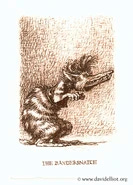
Where are you hiding, Bandersnatch, Bandersnatch? Come to me, come to me! It is not for me to do the chasing after you, it is for me to open my heart to the cruelty of you having been bound, banded and snatched into imprisonment and a form of insanity.
There have been signs and signals for the last two months of this shadow showdown within me, of you wanting my attention. Who are you?! Who are you, shadow of the shadows? Only the shadow knows!
Who knows what evil lurks in the hearts of men? The Shadow knows.
Yes, I have a shadowy memory that you said this often, Terry. Or that, somehow, it was part of the family energy. It’s from an old radio show. Not the shadow of Jung, I don’t think. I’m not sure you knew about Jung because you were stiffly aligned with Freud’s penis projection into everything pointed. Freudian slips were de rigueur, yet another way you would cleverly and decisively catch us out, to leave within us no buried stones beneath which we could hide from your self-serving perspicacious probing, your self-defined probity, your smug self-assured power of perception.
It would seem that by that spate of alliteration that this epistle to you will not be a panegyric at your much belated by me wake. Closer, perhaps, to the drunken relative late to the party speaking without inhibition what s/he fuzzily felt.
With hindsight I now see that this epistle had its distinctive beginning when I was in a used book store hidden behind a recycling centre outside the community of Ajijic, Jalisco Mexico back in June of this year. ‘OMG!’ I spoke out loud with a surprising amount of vigour to a row of books. I had been taken aback, back to childhood, with this ‘chance’ encounter of a shortened expanse of five well-used Georgette Heyer book spines.
Peter Gabriel and Laurie Anderson - This Is the Picture (Excellent Birds)
Georgette Heyer Bio
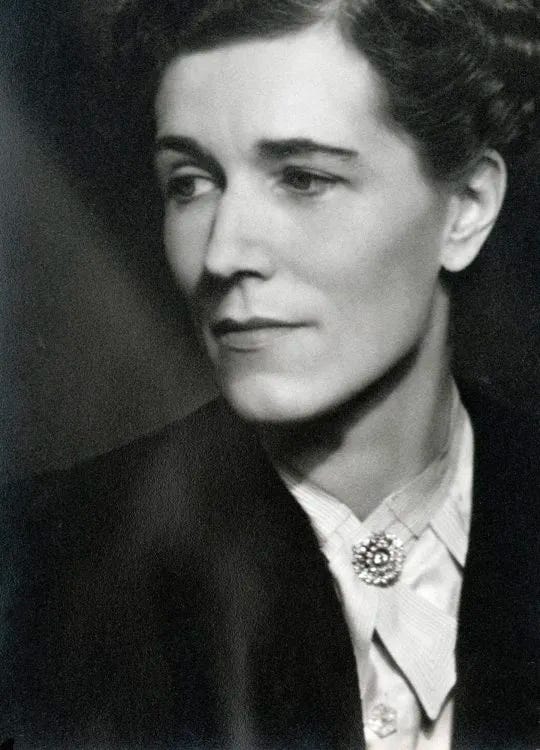
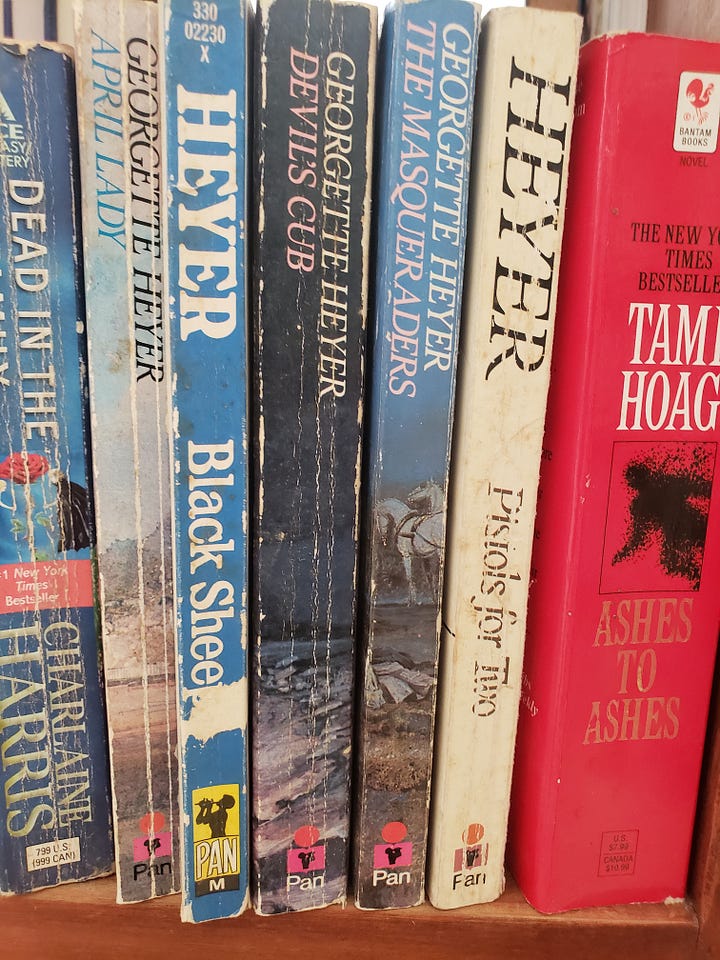
Thus I Get a Call to Heyer Learning
Perhaps your favourite author. Of course I’ve seen Heyer book spines on book shelves before this. Yet this time there was that catch, that hook into my shadow that called me out ‘Oh my God!’ Not that you’re God or anything like that. Well, maybe you are. Maybe you aren’t. There seems to be some new age debate about the existence of oneness across the UNI-verse, within which new age thinking erases subtle distinctions and nuance between things. In a way, you being a Freudian of sorts, isn’t that one of Freud’s most compelling characteristics: everything is a penis? Was he an early woke1 acolyte? A part of the ongoing practices of removing distinction and nuance as a means to disempower the individual?
And I am sure that both Freud and Heyer provide some kind of clue to some small part of you. And so, the struggle of this epistle is for me to investigate something shadowy in me that may have as its genesis something shadowy in you. For now, I’ll skip Freud and I’ll look at the way Heyer may be a clue to you. And with Heyer, perhaps I’ll find a clue to me. Freud will be another epistle.

At one time I thought that the answer to the clue was hiding in plain sight because of how you read and re-read and re-re-re-re-re-read her books. One day, when I was about thirteen, my curiosity directed me to read one of them. Just one, and once was enough for me. It was a quick and easy read that I thought was silly. It completely cleared out any vestige of curiosity about her books while expanding my curiosity of why you read them over and over again. (Or was that a Mary Stewart book I read? Hmmmm. Maybe it was Stewart because I enjoyed her Arthurian re-telling in The Crystal Cave and The Hollow Hills. If that was the ‘actual’ past event, reading Stewart dissuaded me from even opening a Heyer book.) And perhaps, somewhat unconsciously, despite the curiosity cat-in-the-hat having been killed effect of satisfying my curiosity, the satisfaction was that it had planted a seed of doubt about your mother-goddessness.
Many years later I took what may have been a pre-woke Woman’s Studies course at SFU. One section of the course was a study of what was presented as the psychological appeal to women of ‘Harlequin Romances’. And I learned that that particular book market is point precise in grading-rules, to several degrees, of the story’s sexual content and its explicitness. (Heyer gets rated as ‘clean’.) The targeted women in this market have very particular tastes, and the publishing houses are very careful to market the genre with grading that active women’s romance reading groups monitor closely to ensure the publishing houses are compliant to those grading rules.
For this epistle I did a quick dive into Heyer because, beyond your obsessive reading and my having maybe read a single book dismissively in 1974, I knew nothing about her. Recent events in our time of covid have truly emphasised that ignorance is not bliss and that my ignorance is likely as vast as the universe is wide. And is as misunderstood. So maybe, perhaps just the tiniest of maybes, I was hoping to discover something interesting about Heyer that could shed some light into a humanity I hadn’t experienced when you were my mother. And, to be honest, after having taken that course on romance fiction, I was secretly convinced that the author would be a man, or even men, perhaps someone like Melvin in the movie ‘As Good as it Gets.’
And with that clip and, more open eyes than I had during the Women’s Studies course, I wonder if the crazy wokites have attacked them yet, all those men pseudonymously writing as women, for their patriarchal misappropriation of power and for that being an attack by de-gendered men on un-gendered women?
Another Samskara (stuck habit or belief) is Seen and Another Crow Gets Eaten on Behalf of Aparigraha (letting go of dead weight)
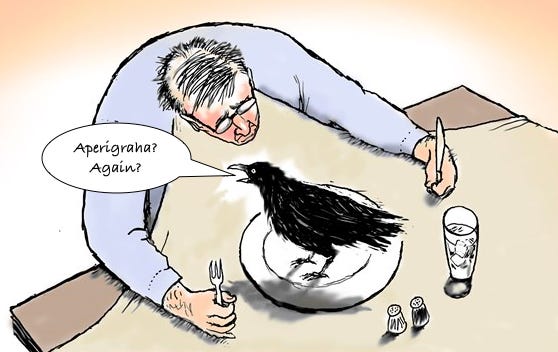
And with that investigation I have been given yet another opportunity to undo or dissolve another samskara, to remove another truth-trap–story-rut from my ideation and to eat some crow. It turns out that Heyer was a prolific ‘she’, and her writing is very highly praised for its accuracy, attention to detail, nuance and wit. (For example, see “Stephen Fry on the enduring appeal of Georgette Heyer”.) So, I apologise for being so dismissive of your taste and my perception of Heyer’s silliness. Still, what was with all that re-re-reading? I confess that I felt pretty contemptuous of your fascination with this kind of ’junk’ reading for a long time. I am sorry for having hurt you with my maliciousness of mindset.
At some time in my early 30s I realised that I was going to die before I had read all the books I really wanted to read and that I had been guilty of reading books as easily labeled ‘junk reading’ as the romances you read: the crime fiction of Dick Francis, and Desmond Bagley, for example, which I would read, re-read and re-re-read just like you! My favourites might have been Odds Against and Whip Hand. For some reason the isolated and stoic suffering protagonist with the crippled hand became a perfectly disembodied man for me to emulate. I likely read each of them more than ten times before I was fifteen. I remember reading Odds Against twice in one day when I was twelve, or maybe thirteen during that summer when I read without stopping for twelve to fourteen hours a day. I read the entire Lord of the Rings Trilogy twice that summer.
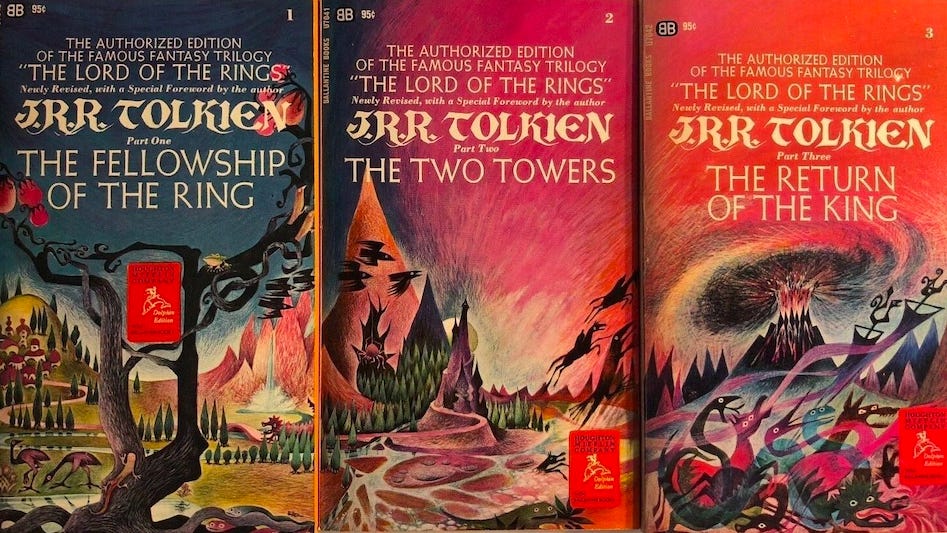
Books as My ’Free’ Pass into the Path of Self-Imposed Imprisonment
I didn’t go outside, and I didn’t meet with friends. Not that I really had many friends. That year, especially during the summer break, was my entry into a self-imposed solitary confinement comprised of sitting in a rocking chair reading, reading re-reading re-re-reading. It was in my early thirties that I truly realised that, and took ownership of the reality that, almost all — not quite all — of my reading had been to avoid being alive in life.
Perhaps I can say, with hindsight, that a part of my ‘higher’ learning from your endless reading of Heyer, and other authors like Francis, Bagley and Smith, was that reading books is a great way to keep the world at bay, to keep the scary world from hearing the baying of the dogs tethered inside of me. Inside of us.
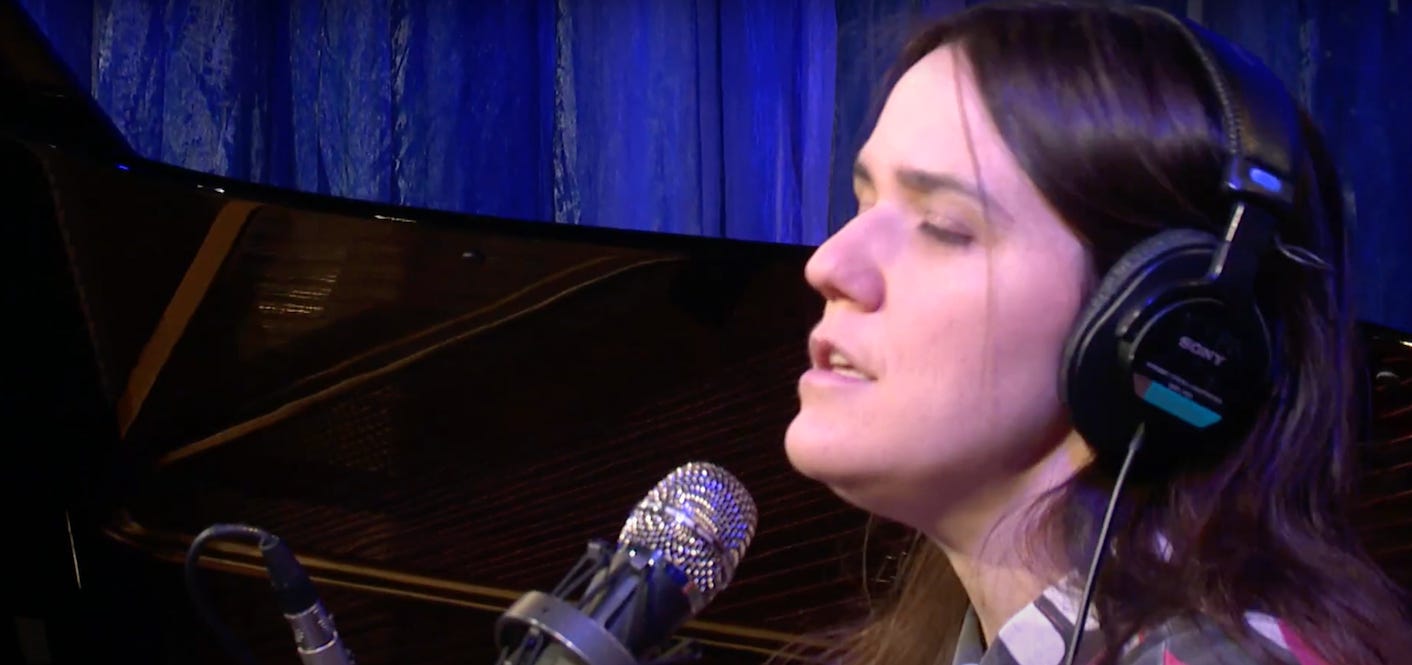
Despite having gone to university, being in a long term relationship, having a ‘good’ steady reliable job, I now see that I had kept myself in solitary confinement ever since my youth. As I write this I see that very likely you had put yourself into a similar form of confinement. As your mother said, way too often, and with complete oblivion to her own hypocrisy, ‘What you see in others comes out in yourself.’ Wow, did I get angry every time she said that! And she said that a lot. And I didn’t know that I was angry.
To Numb One Emotion is to Numb them All and Pernicious New Age Denialism
Your practice, inspired or perhaps condoned by New Age denialism of negativity, absolutely disallowed anger. Now I understand that the disallowance of any emotion is to become numb to it because its not possible for it not to exist when it exists.
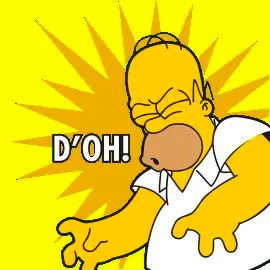
And to numb them all is to become numb to life. And so we were all numbies, kind of zombies, swimming in a sea of anger not one of us was willing, or perhaps even able, to see while we strutted around in delusion as a very modern model of a perfect family. We didn’t see it, that terrifying anger, even when it expressed itself inappropriately as explosions of irrational behaviours including violences such as my thievery and vandalism. Eventually I was caught in the act for the former. I didn’t get caught for the latter.
The timelines are jumbled in my episodic memories of the events. However I suspect that the years of self-imposed solitary confinement with books, books, books, may have been in part my retributive punishment and a method of keeping the anger from expressing itself that way. The vandalism was an extensive and protracted battery and smashing of all glass with large rocks of an early 1950s vintage car. I have privately apologised to the unknown owner of that car many times. With this I publicly apologise for my act of violently expressed anger, for your car having become at that time the lightning rod of an anger storm that released itself through you and your possession.
And those emotions, denied, repressed, suppressed, denigrated, slandered, mocked, didn’t go away. They exist and began to express their existence in my body. Curved back, stiff muscles, eventually obesity etc. In 2014, in my second yoga class, the big ‘AHA’ was the absolute knowledge that the stiffness, pains and discomforts were where my body had stored fear and anger. I’ve been on a practice of removing those remnants ever since. And writing this has been a physical experience of at least some of those early stored denied emotions as this amazing body has moved through various discomforts and expressed compulsions, such as picking my nose.
Terry, your reading-practice modelled my future behaviour, of course. It contributed to firmly establishing in my nervous system what I now understand to be, but at the time was completely oblivious to, the frequency of addiction to books as dissociation. Thereby I became a prodigious and prolific reader who, for many years, carried two pocket books in his pockets at all times. And ‘he’ would, like you, re-re-read the ‘good’ books, in other words, the most distracting books, the ones that helped drug my mind in some way.
And so, even though you set the addiction-to-reading example at a level even beyond that of your husband Claude, I now publicly, openly and with relief apologise to you for the years of my hypocritical criticism of your reading practices. They had become mine and I had been unconscious of them. I now take ownership and responsibility for my choices, and apologise for the ways my choices hurt you.
Narcissism and The Frequency of Addiction
It wouldn’t be until my mid fifties that I became aware that that behaviour was expressing the frequency of addiction, as Tommy Rosen so accurately describes it. I had used books to calm the very high base-level of anxiety that our family’s denial of its extreme dysfunctional nature and black energy had created. Undoubtedly life-long anxiety was a part of the foundation of your behaviour, too. One significant difference between us — at least as far as I can tell — is that I had enough awareness of my seriously broken state to seek healing, to look for wholeness and, as I now understand it from yogic and Buddhist principles, integrity in mind, speech and action.
I began that search in books of course! Initially and for many many years. And even then, hypocritically dismissed reading about one of my real dark addictions, that of co-dependency because to do so would ‘obviously’ exacerbate that affliction in me. I often ‘joked’ in a manner I now see as having elements of your way of contemptuous dismissal, ‘How do co-dependent people look to get well? They lose themselves by forming a co-dependency group.’ And so now, as I write that, I see that I have this to apologise for, too. I am sorry, my brothers and sisters on this human journey, who are struggling with this serious and perhaps most prevalent addiction, for my lack of compassion and outright contempt. The amazing yogi and addiction recovery guru, Nikki Meyers, goes so far as to say that all addictions are ‘rooted’ in co-dependency, which she astutely asserts is the disease of the lost or dissociated self. The self not being expressed joyfully from and with the body.
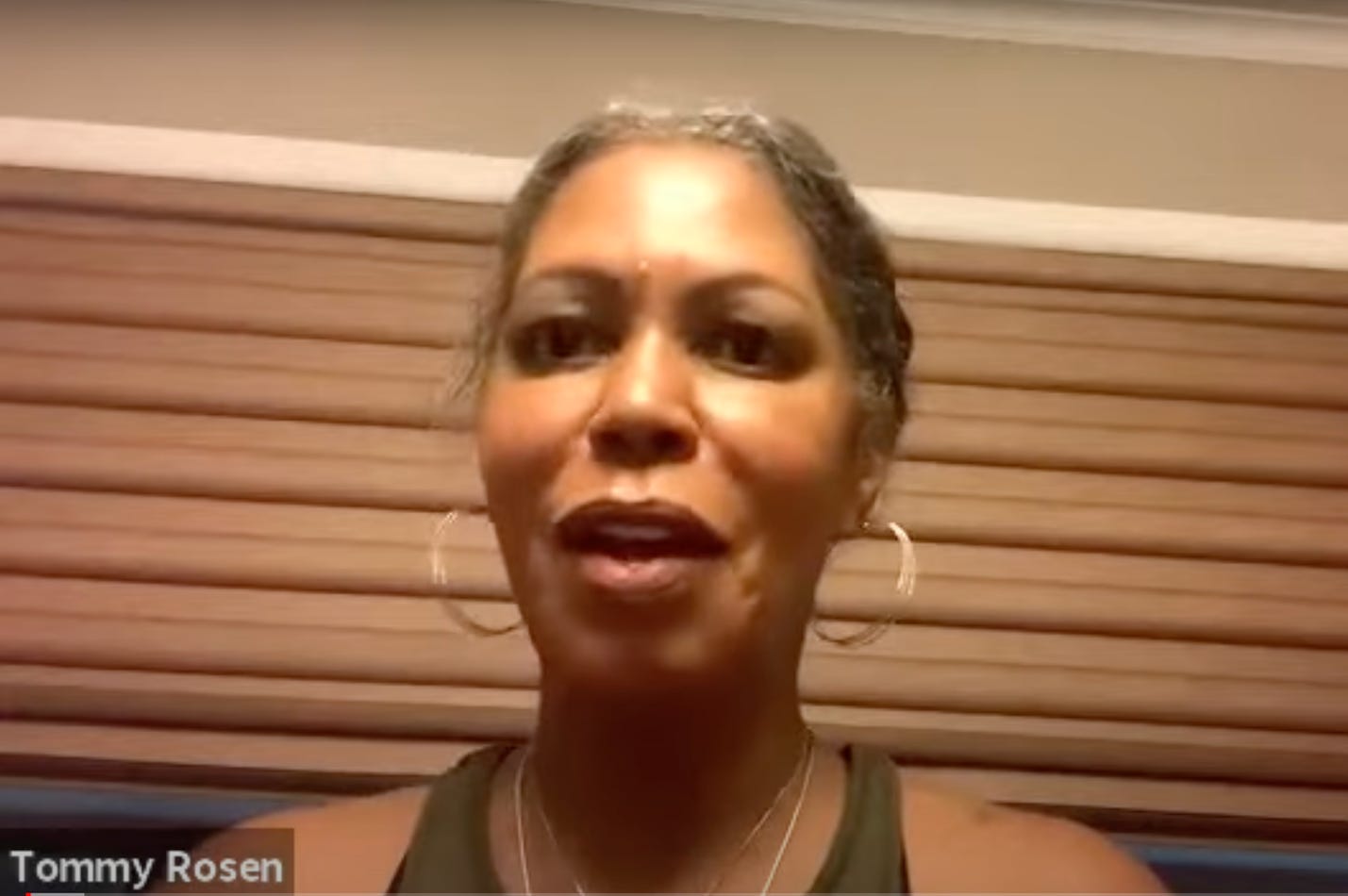
And one of the ways that that difference expressed itself is that you used the powerful idea of life as the opportunity to be your own agent of personal responsibility and action as an emotional weapon against your children. And you used it as the means to abdicate your responsibility to learn to express compassion let alone to be compassionate. You were also able to convince your communities, your extended family and the members of ‘your’ spiritualist church, of your generosity and benevolence. They, or at least most of them as far as I could tell at the time, were unaware that you were in fact an extremely adept narcissist who had emotionally and psychologically hurt your children in order to aggrandise yourself in your communities with the perfection of motherhood as manifested in perfectly mannered children, who were quiet and who provided you with good grades and high praise from teachers, relatives, your communities and strangers.
I have no idea what your experience was of childhood. I was familiar with your parents. As mentioned, your mother embodied my hypocrisy and the anger that I was unconscious of and so drove me crazy — especially by being always late and sanctimonious. And I spent a large amount of time with your father as he explored the back roads, woods and rivers of the gold country around the Cariboo in his search for his northern El Dorado. Much more so than my father, he was a masculine presence in my life. However, I think that was ambivalent in large part because he was unable to compete with the excitement and power and drama of the verbalised Francis heroes that I had encountered before spending all that time with him. I sat in his car and walked the forests with him. I learned to pan for gold in the creeks and small rivers, and what to look for in the topology for clues as to the presence of gold. And I have very little memory of most of it. I had been successfully dissociated from life before books, and then books deepened that dissociation before he took me into the gold rich wilderness with him. Is that similar to what happened to you, too?
Death of a Narcissist. So What? Isn’t Everyone Narcissistic These Days?
Perhaps you will take exception to my claim that you were narcissistic. Actually, that wasn’t how I thought of you until 2014. In 2014 daughter number two, a kind of familial psychopomp, managed to find me online via Goodreads.
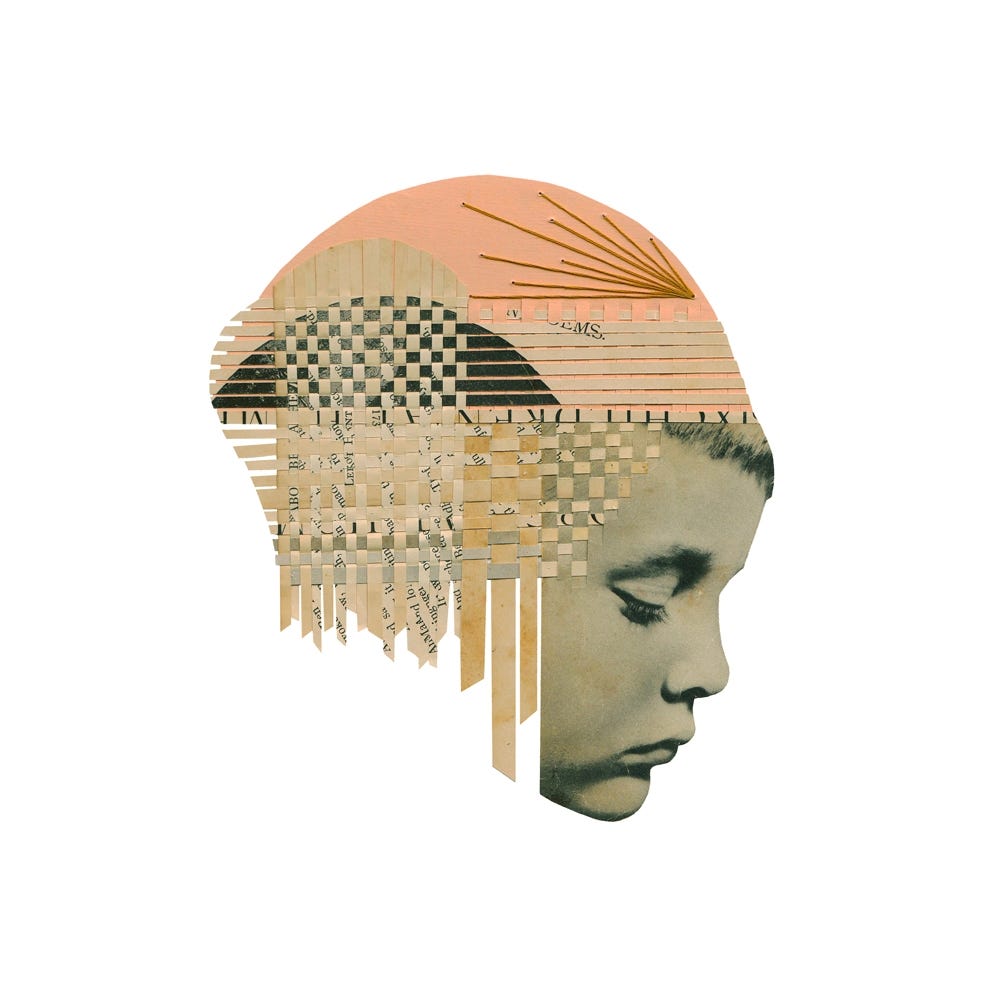
We hadn’t talked or in any way communicated for about ten years before that. She tracked me down, very cleverly, in order to go against your direct order to not tell me, or our number one sister, that you had been diagnosed with terminal cancer. You were in your early to mid seventies, and likely had less than a year to live. As it happened you died about seven months afterwards in January of 2015. Neither me nor, independently of me, the estranged number one daughter went to see you before you died or after your death.
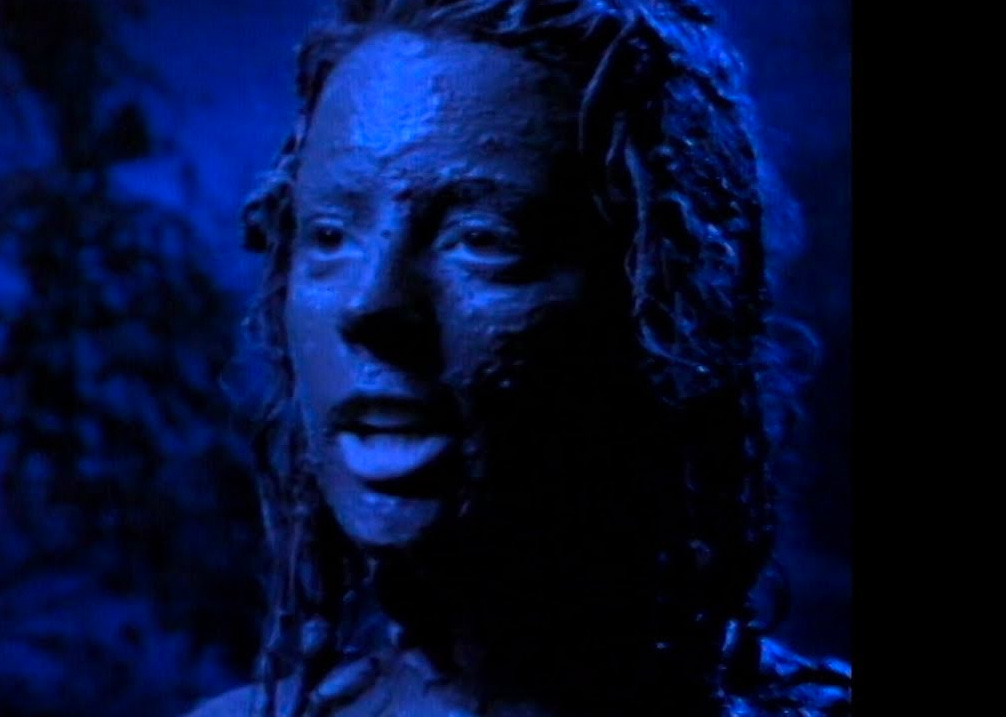
Out of the Frying Pan Into the Fire
In late 1979, when I chose to leave the family and live with the woman with whom I would share thirty-seven years of my subsequent life, you were so against it that the leaving became an event you deliberately made as traumatising as possible to everyone short of pulling out a knife or a gun. And you were especially manipulative of my youngest four year old adopted sister, sister number four, who screamed in terror while she ran across the kitchen floor to clamp onto my leg with a tightness from fear that even now I can still feel. She felt or understood that my leaving was to be a kind of death. At the time I did not, could not imagine being alive without your existence in my life. Co-dependency often knows no limits. For me to survive that leaving I had anticipated a truce that would allow our dysfunction to continue, to limp along more or less as it had been before I smashed the family unity by leaving against your authority. You had so successfully dissociated me from my self that living without you was as unimaginable as living without air.
Somewhere in that charged leaving, which is mostly a fuzzy memory except for being held onto by a four year old like I was going to my death, was your promise or threat that I would be back with my tail between my legs. That was a huge misreading of me, Terry. I didn’t know it at the time that my violent leaving of the devouring mother was a disorganised version of what the Australian indigenous people do to help the pubescent males break their dependency from the mother and the mother archetype and take their first steps into a rebirth into male adulthood. It was a few years later that I stopped referring to you as ‘my mother’ or ‘mom’. You had become Terry and my father had become Claude.
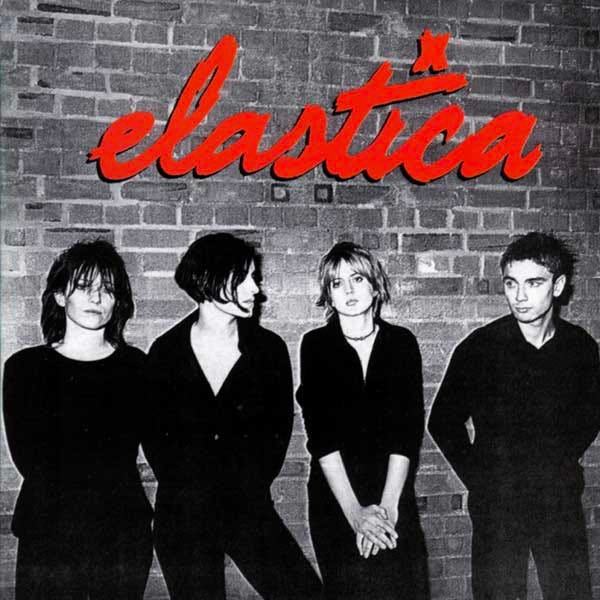
However, for reasons I won’t elaborate in this epistle, I didn’t talk to you after that. Nor did you talk to me. And so it was that our last communication was me doing my best to calm a terrified four year old that I wasn’t abandoning her. And thereby with misplaced or misguided good intentioned ignorance, I lied to her. In 2016 she reached out to me while she was in Vancouver. She was there to attend a large AA meeting and it was great to see her, in recovery, and to learn of her coming to face her own familial generated traumas. (If possible, her experience of ‘mother’ was far far worse than mine. That is another story, her story.) I apologised to her for the promise I had made and failed to keep that day. I had felt guilt about that ever since I had left because to her I had effectively died on that day despite my promise otherwise. Maybe a death worse than death, that of having been wilfully abandoned and lied to.
What I Learned From Your Imminent Death
When daughter number two informed me of your pending death, she said that she had deliberately gone against your explicit instructions to keep me and daughter number one ignorant because the death of a mother is too important not to be disseminated to her children. I thanked sister number two and told her I would think about what I would do. As you know, I didn’t break our pact of silence to go to your bedside. Nor did I go to your funeral. In response to daughter number two’s invitation, I declined it with the explanation that, in my opinion, you were a sociopath. Her response was, paraphrased ‘I wouldn’t argue against that at all. On my kinder days I might say that she is suffering from narcissistic personality disorder.’
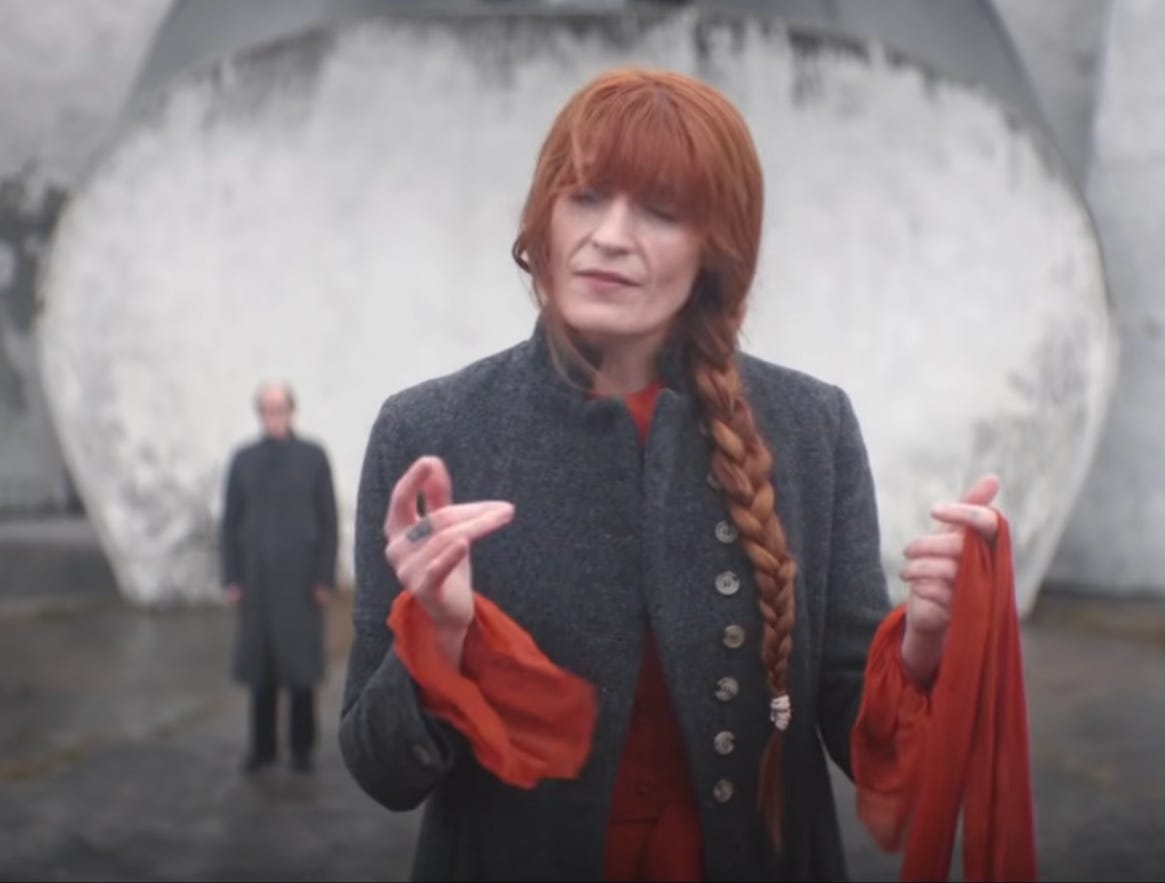
That was when I first heard and considered you to be anything but a sociopath. Although, really, is there a difference between the psychological states of a narcissist and a sociopath? Perhaps it isn’t just semantics, and there is a nuance between the two. (A quick look indicates that the character traits overlap to a significant degree and that, basically, the significant difference is that the narcissist may be slightly more aware of personal consequences to immoral or hurtful behaviours than the sociopath. See ‘Sociopathy vs Narcissistic Personality Disorder: Similarities & Differences’.)
It was after that that your daughter number two shared with me that your reason for wanting your death to remain unknown to me and daughter number one — daughter number three was your sycophant and the whereabouts of daughter number four was unknown, after having been the most brutalised of the five of us — was because you didn’t want to have to listen to our empty and false apologies and/or death-side platitudes. And, as it happens and independently of me, daughter number one also chose to decline the opportunity to say good-bye to you before or after your death for pretty much the same reasons as me. In effect, like you, neither of us were interested in sharing empty platitudes to a sociopath/narcissist.
It was around that time that I learned that most psychologists consider narcissism to be the most difficult psychological state to heal from and that rarely if ever does anyone actually get cured from it. (Yogic-Buddhist scholar and psychologist Michael Stone said that, in his opinion, narcissists cannot be cured, while sociopaths can be. In his talk, he gave an example of the latter.) They also suggest that for the childhood victims of a narcissistic parent, the only healing modality is an extended separation. And that is what four of your children ultimately did in their own ways.
Inappropriate Hackneyed Action As A Root Expression of the Not Quite Good Enough Parent
As I was exploring our mother-son relationship here it began to become clear to me what was perhaps the default characteristic of your not good enough child-rearing practices: instead of being present and eccentrically expressing your Self in a just good enough way, you gave us empty rhetoric in the form of trite truisms and flat platitudes. As I am writing this I do not remember you speaking or acting outside of your amassed pile of hackneyed saws. They, dead words, were what you used to mother us with, none of which came from your heartfelt place. Have you noticed how many of those truisms I’ve shared with you so far in this epistle? Here is a list of those woven into my writing, and some others I remember that you commonly used:
Great minds think alike. Petty minds seldom differ. A stitch in time saves nine. Haste makes waste. He is lost whoever hesitates. Wise men say only fools rush in (where angels fear to tread). The early bird gets the worm. Early to bed, early to rise. Ignorance is bliss. Or, what you don’t know can’t hurt you. The straw that broke the camel’s back. Out of the frying pan into the fire. The pot calling the kettle black. For want of a nail a war was lost. The road to hell is paved with good intentions. What you see in others comes out in yourself. Money is power. Money is the root of all evil. Power corrupts and absolute power corrupts absolutely. It is easier for a camel to go through the eye of a needle, than for a rich man to enter into the kingdom of God. That was instant karma. That was a Freudian slip.
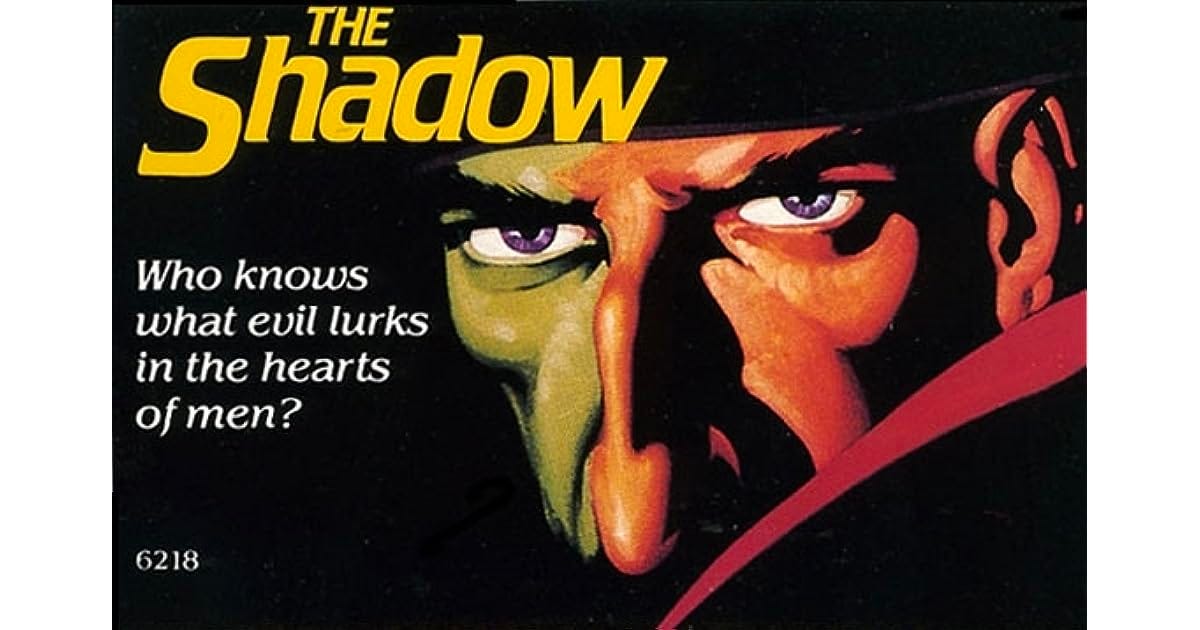
Only the shadow knows. Who knows what evil lurks in the hearts of men? The Shadow knows. It’s your responsibility. You chose to be here. So you want to cry, do you? Keep it up and I’ll really give you something to cry about. [Wooden spoon or hair brush in hand, or hard slap to the back of the head.] Curiosity killed the cat. Satisfaction brought it back. You’ll be back, with your tail between your legs.
I don’t know if that is fully complete, but it gives you the gist. With my continued yogic practices and studies, or Svādhyāya, I see now that what these ‘truths’ are is a barrier against appropriate eccentric action. They are, like all the book-reading, a demarcation used to keep the experience of life distant from who we are. They are a means by which heartless action can be taken under the guise of a doctrinaire ‘wisdom.’ And because of your wishy-washy new age blah blah, and your own mother’s dozen or so equally empty Christian-based platitudes, you kept yourself heartless in your interactions with us.
To be blunt, you were not a good enough mother. I am confident that you did the best that you could do. Which left your children with lots of healing to embody. And many years ago, following what many consider to be the singular most important act of healing, I freely and openly forgave you for your human failures to be a good enough mother. That helped me a great deal.
I have since then come to see that forgiving you was an important step towards healing. It was not the final one. The next and more important and powerful healing practice was when I began to apologise to you for the ways I had hurt you. This is a Ho’oponopono practice. I have been expressing my apologies to you and my family for a couple of years now and with it I have felt a huge change in my energy and joy.
It wasn’t until 2014 that, with a regular yoga practice that I began to feel joy for the first time in my life. And it wasn’t until 2020 or so, after having been doing an extended daily pranayama (breath) and yoga practice that I stopped going to bed most nights quietly hoping to wake up dead, or waking up with the feeling of disappointment and sadness that I was still alive. Since expressing the Ho’oponopono prayer practice for about two years that feeling has disappeared completely and even now, having lost my job and country, my security and income, I feel joyful every day.

From the Heart: Forgiveness, Apology, Gratitude
With all that crap, I say now with honesty, that my experience of life with and without mother is all a part of my process, or journey, from darkness into light, from near total delusion to expansive awareness. With that awareness I move, now, from apologising to you for having hurt you to thanking you for having lived this hard path. Its darkness has given me an awareness of how to live a life more fully alive. I can see where I spent much of my life living platitudes and parroted truths, mostly from great books of wisdom. No more. Your hard path prepared the ground for me to see through the façade of the tyrannical truths, even those disguised with the emptiness of fear-based or manipulative good intentions, those that have become nearly ubiquitous and de rigueur in our age of masked covid tyranny.
Your ‘parenting’ was an exercise of removing individuality, as is the exercise of today’s cabal using so-called medical emergencies in a manner little different from what you did to us: the well-honed tools of sociopathic-narcissistic manipulation. It turns out that you were woke and an agent of the woke agenda to remove human distinction, individuality, and eccentricity by taking away the joy of each of our eccentric expressions in thought, word and action.
As Seth said many years ago, paraphrased, ‘You create the personal reality of your existence and with that the community is created around you. There is no other ‘rule’.’ Yes. I create my reality. I am empowered by birth and life to be 100% responsible for my experience of existence. I am not your or anybody’s victim, regardless the circumstances I experience. I have become the agent of my own appropriate eccentric action. With that agency I create change that reduces suffering by my words and actions.
Continues here:
Freud and Kinsey are Dead! I’ll Manga Out the Inflated Penis’s Envy of Edie’s Puss
🙏 If this epistle gave you some pleasure, and/or an ‘aha’ benefit, become a paid subscriber. 🙏
Or if you prefer, I would love a coffee! If you would like to buy me one click on the coffee/matcha. With gratitude. Thank you. 🙏
The Epistle’s Awesome Playlist:
Spotify
YouTube
Request for Help
In July of 2024 I had unexpected pacemaker surgery that cleaned out my savings.
I requested donations to help me through the pinch. I anticipate that my immediate threat of insolvency will be cleared before the end of the year.
If you have come to this essay before January 1, 2025, and you are in position to help and would like to, you can check out the details of that in the link in the post. Once my yoga based trauma recovery centre is given the green light with confirmation of my residency, I anticipate the need for immediate financial help will disappear. As the situation changes I will update my requirements. At this time, I’m about 1/3 of what I anticipate is required. So if you are curious and would like to help me, please consider my request for donations and give an amount, if you are called to do so, that gives you joy. I appreciate and am grateful for you giving me your consideration.
And the Song of the epistle: Talking Heads — Mind.

Lyrics
[Verse 1] Time won't change you Money won't change you [Pre-Chorus 1] I haven't got the faintest idea Everything seems to be up in the air at this point [Chorus] I need something to change your mind I need something to change your mind I need something to change your mind I need something to change your mind [Verse 2] Drugs won't change you Religion won't change you (What's a matter with you?) [Pre-Chorus 2] I haven't got the faintest idea Everything seems to be up in the air at this time [Chorus] I need something to change your mind (Mind) I need something to change your mind (Mind) I need something to change your mind (Mind) I need something to change your mind (Mind) [Verse 3] Science won't change you Looks like I can't change you [Pre-Chorus 3] I try to talk to you to, to make things clear But you're not even listening to me And it comes directly from my heart to you [Chorus] I need something to change your mind (Mind) I need something to change your mind (Mind) I need something to change your mind (Mind) I need something to change your mind (Mind)
Addendum 2023.12.26: I will be looking at ‘woke’ in a future post after being confronted by someone, who felt my usage of ‘woke’ was a term that is used by the right to end discussion with the left by categorising everyone ‘left’ with a ‘negative’ brush that included and so dismissed ‘nice’ people with sound ‘liberal’ values such as universal health care.






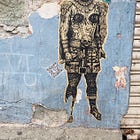

What a powerful and honest and vulnerable account, Guy. I was thinking of the term 'devouring mother' just before I read it. Bandersnitch is great. I don't know the psychiatric definition but I think of a narcissist as someone so wrapped up in their own ego, they see other people as bit players in their drama. I think of a sociopath as someone who actively wants to hurt others. I can see why a narcissist would be harder to change.
In one way we had the same childhood--living in books. In all other ways, likely the opposite. That's not to say warm and loving but not manipulative. More boring, a word I appreciate more and more reading your account. My family left me with little baggage to deal with.
I can see now why there are certain ideas of mine that you answer with "No." Curiously, your mother's nickname was mine for my first 20+ years. I forget if I became a Teresa in college or after I came to California. And not a Tereza until 20 years ago, perhaps. 'Terry' was likely a Teresa too.
Thanks for sharing this personal journey with me. I'm glad for whatever made you who you are but sorry it has been such a painful process.
Truly LOVED this essay Guy - your experiences echo my own and add to my own learning also. I learnt through separation for the last 3 years from my father and step mother to appreciate my own growth and understanding, to recognise their lack of growth, and to be accepting of both. It was also interesting to read your story as I contemplate my relationship with my son. We realised that we had a co-dependent relationship but neither of us knew how to break free from it. As i have stepped back from all judgement about how he lives his life and accepted that he needs to follow his own journey to healing and who knows whether that will involve separating himself from me too? We currently share our sense of humour and friendship and I hope that continues but I recognise the damage that my ego did to him and I have been able to apologise to him before I leave (whenever that is). Two weeks ago I met with my father and step mother for lunch. I felt compassion, but no greater compassion than I feel for anyone suffering. I asked myself if I was heartless, how could I not care more about them? I did not feel anything that triggered me. I understood that they are not able to apologise for their actions and I see how it has manifested in their own health. I took away from that meeting some more learning and I hope that I will see more clearly the things that I need to apologise to them for. I did not have contact with my biological mother for 30 years and then we had contact for about 15 years but we both understood I think that neither of us cared all that much and we just let it go again. People are in our lives to teach us and when we have learnt the lesson we can move on and them from us also. Thank you again for openly and honestly sharing your thoughts.